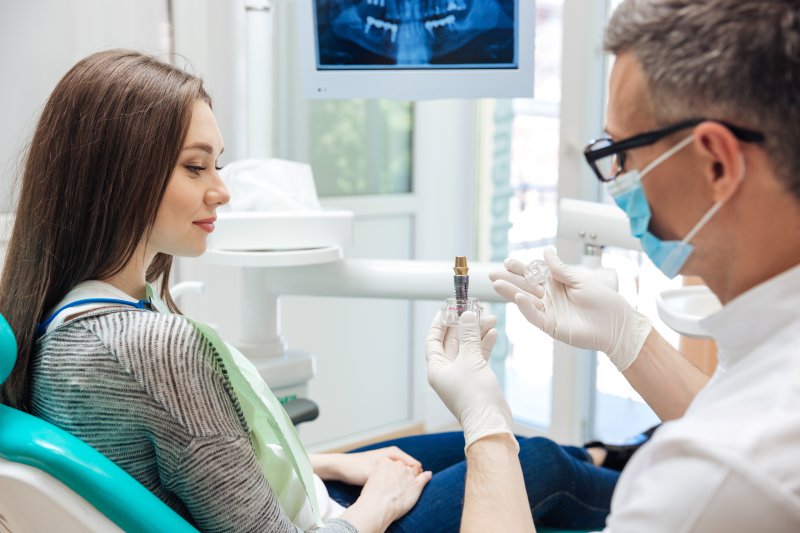
If you’re looking into tooth replacement options, you’ve probably heard a lot about the merits of dental implants. They’re considered the gold standard of tooth replacement, feeling much more natural and being much more durable than dentures and bridges.
However, they’re also the only tooth replacement option that requires surgery. It’s understandable for that to make you nervous, or to even wonder whether the surgery is safe. If you’re in that position, here’s a guide that will tell you what you need to know about the safety of dental implants.
Are Dental Implants Safe?
Dental implants require your provider to surgically place a small titanium post in the jaw. With any surgery, there is some amount of risk; however, the hazards when it comes to dental implants are remarkably unlikely.
Dental implants have a 95% rate of success at 20 years, meaning that if you get the procedure, you can expect your implants to last at least that long. There are risks with any procedure, but dental implant surgery is about as safe as they come.
Risks of Failure
Of course, the best way to avoid those risks is to understand them. Your dentist obviously will, but it wouldn’t hurt for you to know what can go wrong as well. There are two common failure points for dental implants:
Osseointegration Failure
Osseointegration is the process of the titanium post fusing to the jawbone. The process takes a few months, and it’s the source of dental implants’ incredible durability. Most people will have no problem with this process, but some people have a diminished capacity to heal properly after the surgery. That increases your chances of infection and implant failure.
Diabetics or people on immunosuppressants may have a hard time with osseointegration, so you should let your periodontist know about your pre-existing conditions. Smokers also have a much higher chance of osseointegration failure, which is why your dentist would recommend quitting for two weeks before and ninety days after your surgery.
Peri-implantitis
The second main risk factor for losing your implant is gum disease which begins to attack the bone, called peri-implantitis. This condition can happen due to contamination from the surgery, but the more common reason is a lack of dental hygiene.
If you want to prevent this problem, you need to make sure you’re taking good care of your dental implants. Brush them twice a day, floss them daily, and use mouthwash to keep infection at bay.
About the Author
Dr. Eduardo Lorenzana has been a periodontist for over 25 years, and he never tires of helping his patients find their perfect smiles. As a dental implant specialist, there’s no one better to help you through the surgical process. Dr. Lorenzana received both his Doctor of Dental Surgery and his Certificate in Periodontics from the Baylor College of Dentistry.
If you have any questions about safety when it comes to dental implants, he can be reached at his website or by phone at (210) 492-3519.

